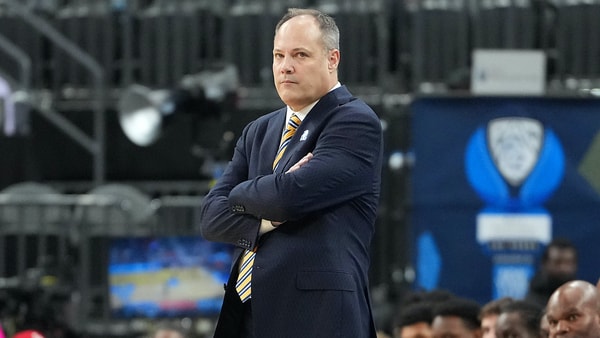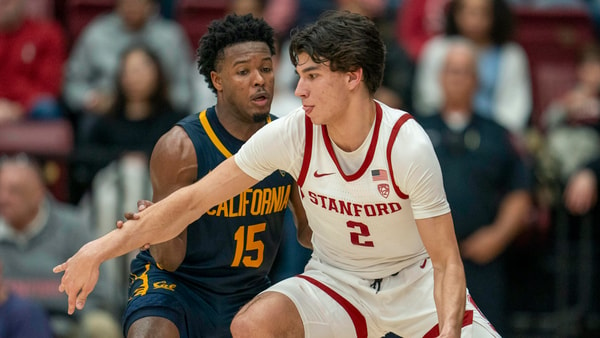
I disagree with Bryan The Intern. I know that puts me on solid ground with a bunch of you, but wait until I inform you of the subject with which I take umbrage:
The Bowl Championship Series. Well, that and Kate Martin's dunking prowess. The lady sports a Rock-A-Bye-Baby that would make Harold Miner weep. I digress. There is a consistent group-thought that prevails amongst sports fans, and our man Bryan in particular, that regards the BCS as stupid.
The general belief is that a postseason tournament is long over-due in college football. Really, outside of a few luminaries in sports and the always defamed college presidents, you would be hard pressed to find many people that support the current bowl system over a 'proper' tournament. You're in luck. I am one of those people. While UK is in finals week, it feels like a good time to branch out and explore why one might appreciate the current bowl system and why a tournament might be a bad idea. I mean, I have no financial stake in the matter, unlike the college presidents, and I am not a complete thundering moron. Neither is John Saunders, Chuck Klosterman, or Tim Cowlishaw, all of whom openly support the current college postseason system over a tournament. I challenge you, dear reader, to step outside the box for a moment, disregard the status quo and ask yourself why we support the BCS?
First, there are logistics associated with college football that are unique to any other sport. These issues make comparisons of college football tournament play to other tournament play problematic. The two biggest issues are:
1)
You can only play one football game a week. That pretty much eliminates any real comparisons to basketball, tennis, hockey, or any other sports that can be played on back-to back-nights. Those sports are made for tournament play because you can not only play several games over a weekend in a tournament (thus including a large number of teams), but you have ample opportunity over the regular season to properly assess postseason credentials.
Football's one game per week limits the evaluation points one has to adequately determine which teams should move on to the postseason. While basketball teams, for example, can play over 30 games to allow for all types of statistical comparisons, the accuracy of such assessments dwindle significantly when applied to 12 games. Imagine if basketball teams played once a week over 12 weeks and we were forced to use that information to determine participation in March Madness. Would 64 slots be enough for all the arguments you could make for a particular team's inclusion into the tournament? Even if it were, the tournament would take over a month to play. The limitation of number of showcase opportunities in football make it so that sport can't be compared to the other tournament-based sports that have more regular season games.
2)
Professional leagues have a commissioner to architect the schedule and number of teams in the league while colleges and conferences set their own schedules against any of the 120 teams in Division 1 college football. This factor eliminates a valid comparison to any professional football league. The NFL and other pro leagues employ a dude that tells the Miami Dolphins who to play and when. The commissioner sets the schedules before the season and individual teams or divisions don't get to choose their opponents. Additionally, divisional opponents are played twice with home teams alternating to eliminate the home field advantage. At the end of the season MATH, one of the things people railed against being a main component of the BCS, determines if the team makes the playoffs or not. The professional team doesn't have the ability to stack the deck or use other tactics to sway their postseason entry credentials.
The Bengals can't choose to play 2 Canadian football teams, an arena league team, and the Bearcats practice squad to pad themselves to a 4-0 record before divisional play begins. Additionally, nobody cares if the Bengals beat the Browns by 3 points or 50 when determining their postseason viability. A win is a win and how you do it doesn't matter. As a tangential point, NFL postseasons also aren't determined by a vote of a New York Jets coaching assistant or a beat reporter at the Kansas City Star.
In college football, the large number of teams, the limited amount of regular season games, and the inability for institutional control either over scheduling or ranking makes the game one that can't realistically compared to other sports and their postseason tournaments.
Those above problems are not solved by simply creating a tournament. I don't care if you make a 25 team tournament,
you still have issues with properly evaluating teams that only play 12 times and have inconsistent opponents. Once you realize that a tournament doesn't fix the unique issues associated with college football, one should assess the ramifications of a college football tournament.
-No one can agree on who to include in the tournament anymore than they can agree on who to include in a championship game. If you lament the unfairness of a Cincinnati, a TCU, or a Boise State not getting into a two-team tournament (Which is really the paradigm shift you should have when thinking about the BCS. Rather than one game, it is a two team tournament), then
you have to lament the plethora of teams that would miss a 6, 8, or 10 team tournament. Consider this year's final BCS standings in an 8 team tournament. Why does Ohio State get in over Iowa, Penn State, or BYU teams with a identical records or a Georgia Tech which has one more win? You could easily argue that the toughness of the Big East, Big 12 and SEC compared to the Big Ten is worth at least one loss to LSU, West Virginia, Pittsburgh, and Oklahoma State. Instead of solving anything with a tournament, you just gave 7 teams a legitimate gripe about exclusion rather than 3. How is that better?
-Conferences like the SEC would get jobbed. If the SEC truly is the best league in the country and has more than two of the best teams, why aren't those extra teams allowed to determine the result on the field? Why does their superior talent and coaching limit the teams involved? Why does the mediocre Oregon get to a tournament over an LSU? If the argument is that a tournament is more fair, how is it more fair to the best conferences that don't get their teams in the tournament?
-A tournament will kill the bowl system. You either make the tournament or you don't. Right know, the bowls are special for the teams and general football fans because of what they mean. Kentucky football, for example, has a realistic goal because of the current bowl system. There is a point to playing the season other than providing fodder for Alabama and Florida.
The bowls not in the tournament, at best, become the NIT, and at worst cease to exist. Teams like UK would play only for glory and nothing they do would actually matter.
Ultimately, this is where this argument culminates. College football has the most interesting, most exciting regular season of any sport. Even the mighty NFL can't muster the routine excitement that regular season college games elicit. There is a reason that there is no on-location NFL Gameday show.
The best argument against a tournament is that those that support it don't know for certain that a tournament won't kill the regular season. They *THINK* it won't, but they take the regular season passion and pageantry as a given. BCS haters are willing to risk a sport they love for 3 months simply for the peace of mind that a tournament might provide. A tournament has the potential to kill all of best parts of the college football regular season and I am not willing to take that risk. I think
Klosterman sums it up best in the following quote:
Their (anti-BCS people) argument always seems to be, "College football is the best, most interesting sport in America, but it needs a play-off system." How can they not realize that the reason it's so great is *because* there is no play-off system?
Now, does any of this mean the BCS is perfect? Absolutely not. I'll let you digest this argument (as well as tear it apart in the comments) and let you know some of my suggestions for improvements for the sport tomorrow.
 I disagree with Bryan The Intern. I know that puts me on solid ground with a bunch of you, but wait until I inform you of the subject with which I take umbrage: The Bowl Championship Series. Well, that and Kate Martin's dunking prowess. The lady sports a Rock-A-Bye-Baby that would make Harold Miner weep. I digress. There is a consistent group-thought that prevails amongst sports fans, and our man Bryan in particular, that regards the BCS as stupid. The general belief is that a postseason tournament is long over-due in college football. Really, outside of a few luminaries in sports and the always defamed college presidents, you would be hard pressed to find many people that support the current bowl system over a 'proper' tournament. You're in luck. I am one of those people. While UK is in finals week, it feels like a good time to branch out and explore why one might appreciate the current bowl system and why a tournament might be a bad idea. I mean, I have no financial stake in the matter, unlike the college presidents, and I am not a complete thundering moron. Neither is John Saunders, Chuck Klosterman, or Tim Cowlishaw, all of whom openly support the current college postseason system over a tournament. I challenge you, dear reader, to step outside the box for a moment, disregard the status quo and ask yourself why we support the BCS?
First, there are logistics associated with college football that are unique to any other sport. These issues make comparisons of college football tournament play to other tournament play problematic. The two biggest issues are:
1) You can only play one football game a week. That pretty much eliminates any real comparisons to basketball, tennis, hockey, or any other sports that can be played on back-to back-nights. Those sports are made for tournament play because you can not only play several games over a weekend in a tournament (thus including a large number of teams), but you have ample opportunity over the regular season to properly assess postseason credentials. Football's one game per week limits the evaluation points one has to adequately determine which teams should move on to the postseason. While basketball teams, for example, can play over 30 games to allow for all types of statistical comparisons, the accuracy of such assessments dwindle significantly when applied to 12 games. Imagine if basketball teams played once a week over 12 weeks and we were forced to use that information to determine participation in March Madness. Would 64 slots be enough for all the arguments you could make for a particular team's inclusion into the tournament? Even if it were, the tournament would take over a month to play. The limitation of number of showcase opportunities in football make it so that sport can't be compared to the other tournament-based sports that have more regular season games.
2) Professional leagues have a commissioner to architect the schedule and number of teams in the league while colleges and conferences set their own schedules against any of the 120 teams in Division 1 college football. This factor eliminates a valid comparison to any professional football league. The NFL and other pro leagues employ a dude that tells the Miami Dolphins who to play and when. The commissioner sets the schedules before the season and individual teams or divisions don't get to choose their opponents. Additionally, divisional opponents are played twice with home teams alternating to eliminate the home field advantage. At the end of the season MATH, one of the things people railed against being a main component of the BCS, determines if the team makes the playoffs or not. The professional team doesn't have the ability to stack the deck or use other tactics to sway their postseason entry credentials. The Bengals can't choose to play 2 Canadian football teams, an arena league team, and the Bearcats practice squad to pad themselves to a 4-0 record before divisional play begins. Additionally, nobody cares if the Bengals beat the Browns by 3 points or 50 when determining their postseason viability. A win is a win and how you do it doesn't matter. As a tangential point, NFL postseasons also aren't determined by a vote of a New York Jets coaching assistant or a beat reporter at the Kansas City Star.
In college football, the large number of teams, the limited amount of regular season games, and the inability for institutional control either over scheduling or ranking makes the game one that can't realistically compared to other sports and their postseason tournaments.
Those above problems are not solved by simply creating a tournament. I don't care if you make a 25 team tournament, you still have issues with properly evaluating teams that only play 12 times and have inconsistent opponents. Once you realize that a tournament doesn't fix the unique issues associated with college football, one should assess the ramifications of a college football tournament.
-No one can agree on who to include in the tournament anymore than they can agree on who to include in a championship game. If you lament the unfairness of a Cincinnati, a TCU, or a Boise State not getting into a two-team tournament (Which is really the paradigm shift you should have when thinking about the BCS. Rather than one game, it is a two team tournament), then you have to lament the plethora of teams that would miss a 6, 8, or 10 team tournament. Consider this year's final BCS standings in an 8 team tournament. Why does Ohio State get in over Iowa, Penn State, or BYU teams with a identical records or a Georgia Tech which has one more win? You could easily argue that the toughness of the Big East, Big 12 and SEC compared to the Big Ten is worth at least one loss to LSU, West Virginia, Pittsburgh, and Oklahoma State. Instead of solving anything with a tournament, you just gave 7 teams a legitimate gripe about exclusion rather than 3. How is that better?
-Conferences like the SEC would get jobbed. If the SEC truly is the best league in the country and has more than two of the best teams, why aren't those extra teams allowed to determine the result on the field? Why does their superior talent and coaching limit the teams involved? Why does the mediocre Oregon get to a tournament over an LSU? If the argument is that a tournament is more fair, how is it more fair to the best conferences that don't get their teams in the tournament?
-A tournament will kill the bowl system. You either make the tournament or you don't. Right know, the bowls are special for the teams and general football fans because of what they mean. Kentucky football, for example, has a realistic goal because of the current bowl system. There is a point to playing the season other than providing fodder for Alabama and Florida. The bowls not in the tournament, at best, become the NIT, and at worst cease to exist. Teams like UK would play only for glory and nothing they do would actually matter.
Ultimately, this is where this argument culminates. College football has the most interesting, most exciting regular season of any sport. Even the mighty NFL can't muster the routine excitement that regular season college games elicit. There is a reason that there is no on-location NFL Gameday show. The best argument against a tournament is that those that support it don't know for certain that a tournament won't kill the regular season. They *THINK* it won't, but they take the regular season passion and pageantry as a given. BCS haters are willing to risk a sport they love for 3 months simply for the peace of mind that a tournament might provide. A tournament has the potential to kill all of best parts of the college football regular season and I am not willing to take that risk. I think Klosterman sums it up best in the following quote:
I disagree with Bryan The Intern. I know that puts me on solid ground with a bunch of you, but wait until I inform you of the subject with which I take umbrage: The Bowl Championship Series. Well, that and Kate Martin's dunking prowess. The lady sports a Rock-A-Bye-Baby that would make Harold Miner weep. I digress. There is a consistent group-thought that prevails amongst sports fans, and our man Bryan in particular, that regards the BCS as stupid. The general belief is that a postseason tournament is long over-due in college football. Really, outside of a few luminaries in sports and the always defamed college presidents, you would be hard pressed to find many people that support the current bowl system over a 'proper' tournament. You're in luck. I am one of those people. While UK is in finals week, it feels like a good time to branch out and explore why one might appreciate the current bowl system and why a tournament might be a bad idea. I mean, I have no financial stake in the matter, unlike the college presidents, and I am not a complete thundering moron. Neither is John Saunders, Chuck Klosterman, or Tim Cowlishaw, all of whom openly support the current college postseason system over a tournament. I challenge you, dear reader, to step outside the box for a moment, disregard the status quo and ask yourself why we support the BCS?
First, there are logistics associated with college football that are unique to any other sport. These issues make comparisons of college football tournament play to other tournament play problematic. The two biggest issues are:
1) You can only play one football game a week. That pretty much eliminates any real comparisons to basketball, tennis, hockey, or any other sports that can be played on back-to back-nights. Those sports are made for tournament play because you can not only play several games over a weekend in a tournament (thus including a large number of teams), but you have ample opportunity over the regular season to properly assess postseason credentials. Football's one game per week limits the evaluation points one has to adequately determine which teams should move on to the postseason. While basketball teams, for example, can play over 30 games to allow for all types of statistical comparisons, the accuracy of such assessments dwindle significantly when applied to 12 games. Imagine if basketball teams played once a week over 12 weeks and we were forced to use that information to determine participation in March Madness. Would 64 slots be enough for all the arguments you could make for a particular team's inclusion into the tournament? Even if it were, the tournament would take over a month to play. The limitation of number of showcase opportunities in football make it so that sport can't be compared to the other tournament-based sports that have more regular season games.
2) Professional leagues have a commissioner to architect the schedule and number of teams in the league while colleges and conferences set their own schedules against any of the 120 teams in Division 1 college football. This factor eliminates a valid comparison to any professional football league. The NFL and other pro leagues employ a dude that tells the Miami Dolphins who to play and when. The commissioner sets the schedules before the season and individual teams or divisions don't get to choose their opponents. Additionally, divisional opponents are played twice with home teams alternating to eliminate the home field advantage. At the end of the season MATH, one of the things people railed against being a main component of the BCS, determines if the team makes the playoffs or not. The professional team doesn't have the ability to stack the deck or use other tactics to sway their postseason entry credentials. The Bengals can't choose to play 2 Canadian football teams, an arena league team, and the Bearcats practice squad to pad themselves to a 4-0 record before divisional play begins. Additionally, nobody cares if the Bengals beat the Browns by 3 points or 50 when determining their postseason viability. A win is a win and how you do it doesn't matter. As a tangential point, NFL postseasons also aren't determined by a vote of a New York Jets coaching assistant or a beat reporter at the Kansas City Star.
In college football, the large number of teams, the limited amount of regular season games, and the inability for institutional control either over scheduling or ranking makes the game one that can't realistically compared to other sports and their postseason tournaments.
Those above problems are not solved by simply creating a tournament. I don't care if you make a 25 team tournament, you still have issues with properly evaluating teams that only play 12 times and have inconsistent opponents. Once you realize that a tournament doesn't fix the unique issues associated with college football, one should assess the ramifications of a college football tournament.
-No one can agree on who to include in the tournament anymore than they can agree on who to include in a championship game. If you lament the unfairness of a Cincinnati, a TCU, or a Boise State not getting into a two-team tournament (Which is really the paradigm shift you should have when thinking about the BCS. Rather than one game, it is a two team tournament), then you have to lament the plethora of teams that would miss a 6, 8, or 10 team tournament. Consider this year's final BCS standings in an 8 team tournament. Why does Ohio State get in over Iowa, Penn State, or BYU teams with a identical records or a Georgia Tech which has one more win? You could easily argue that the toughness of the Big East, Big 12 and SEC compared to the Big Ten is worth at least one loss to LSU, West Virginia, Pittsburgh, and Oklahoma State. Instead of solving anything with a tournament, you just gave 7 teams a legitimate gripe about exclusion rather than 3. How is that better?
-Conferences like the SEC would get jobbed. If the SEC truly is the best league in the country and has more than two of the best teams, why aren't those extra teams allowed to determine the result on the field? Why does their superior talent and coaching limit the teams involved? Why does the mediocre Oregon get to a tournament over an LSU? If the argument is that a tournament is more fair, how is it more fair to the best conferences that don't get their teams in the tournament?
-A tournament will kill the bowl system. You either make the tournament or you don't. Right know, the bowls are special for the teams and general football fans because of what they mean. Kentucky football, for example, has a realistic goal because of the current bowl system. There is a point to playing the season other than providing fodder for Alabama and Florida. The bowls not in the tournament, at best, become the NIT, and at worst cease to exist. Teams like UK would play only for glory and nothing they do would actually matter.
Ultimately, this is where this argument culminates. College football has the most interesting, most exciting regular season of any sport. Even the mighty NFL can't muster the routine excitement that regular season college games elicit. There is a reason that there is no on-location NFL Gameday show. The best argument against a tournament is that those that support it don't know for certain that a tournament won't kill the regular season. They *THINK* it won't, but they take the regular season passion and pageantry as a given. BCS haters are willing to risk a sport they love for 3 months simply for the peace of mind that a tournament might provide. A tournament has the potential to kill all of best parts of the college football regular season and I am not willing to take that risk. I think Klosterman sums it up best in the following quote:








Discuss This Article
Comments have moved.
Join the conversation and talk about this article and all things Kentucky Sports in the new KSR Message Board.
KSBoard